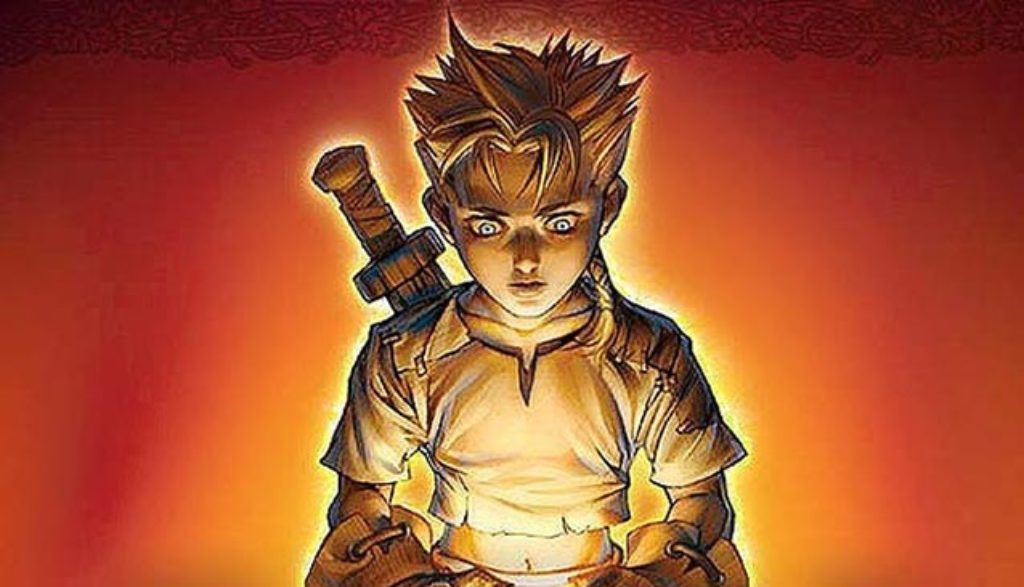
In 1974, military war-game aficionados decided to spice up their medieval battles by adding wizards to the fray. Eventually those games morphed from epic campaigns between armies to small parties of characters exploring dark dungeons. Without trying, Gary Gygax and Dave Arneson launched the granddaddy of all role-playing games (RPGs), Dungeons & Dragons.
Dungeons & Dragons’ popularity peaked in the 1980s. Nevertheless, it’s exerted lasting influence on the video game world. Scores of games have emulated D&D, with each new generation adding complexity and realism. One of the most eagerly awaited new releases in the electronic RPG genre this year is Fable.
Once Upon a Time in Albion …
Fable introduces us to the world of Albion, where your character begins the game as a young boy. (Girls don’t get the option of playing their own gender.) This hero-to-be must accomplish three simple tasks to purchase a birthday present for his sister. But her special day turns into a nightmare when bandits torch the village. Your family is slaughtered, but you’re rescued by a mysterious stranger who takes you to the Hero’s Guild to hone your fighting and magical abilities.
Fable is built around quests that develop your warrior prowess. Defeating enemies earns experience points and gold, which you’ll need to upgrade skills and purchase weapons, armor and food. But the game’s signature element is the freedom it gives players to pursue a life of good or evil. You can protect people … or kill them. Each choice shapes your destiny—and appearance. Virtuous choices bestow a glowing aura. Veer toward wickedness, however, and horns sprout from your head.
“Norty” or Nice?
Fable offers an expansive array of moral choices. Your character can eat, drink (including beer) and be merry. But excessive drinking results in drunkenness, and overeating fattens you up. Indeed, nearly every decision made results in concrete consequences, for better or worse.
Communication with others comes via a repertoire of mostly nonverbal gestures, the list of which expands as your character’s renown grows. Initial gestures include smiles, laughter and sneering. Later, you can belch, pass gas and raise your middle finger. Near the end, your character “earns” the ability to use the s-word.
On the relationship front, you can court a woman—or a man—and get married. Marriage yields opportunities for sex, which is depicted by a black screen and the furtive voice of your spouse saying how “norty” you are. Treat your beloved badly (e.g., not visiting, being abusive or passing gas too frequently) and your spouse will divorce you—an outcome that swings your moral alignment toward evil.
Though your character must be married to have sex, he can marry as many spouses as he wants; covert polygamy is perfectly acceptable. In contrast, the game portrays divorce as a negative outcome. Fable thus sends decidedly mixed messages when it comes to marriage and sexuality.
Just a Flesh Wound?
The game’s combat usually consists of killing other humans, though you’ll occasionally face undead interlopers, too. Angry enemies sometimes boast, “I’m gonna send you straight to h—.” Fable isn’t excessively bloody, but a well-aimed attack will graphically decapitate a foe.
Fighting is usually in self-defense. Yet you can kill anyone you meet (except in some towns where your weapons are confiscated). Wanton violence, such as dispatching innocent villagers, propels your character down the path of evil and results in fines you must pay to restore your reputation.
One particularly disturbing choice your character can make involves leading an unsuspecting trader to the chapel of Skorm (an evil god) for sacrifice. A movie-like insert shows the screaming character being lifted up by an unseen force, bent backward, then enveloped in darkness.
Choose Your Own Adventure
Fable‘s moral element is what makes it so compelling—and potentially problematic. It reinforces noble choices, but it also lets curious players flirt with interactive immorality.
Interestingly, the game’s designers limited some choices because professional testers made unexpectedly heinous decisions. Lionhead Studios president Peter Molyneux told Electronic Gaming Monthly, “I didn’t plan for people in Fable to massacre entire villages. … I didn’t plan for one player to use his wife as a human shield, and when we first introduced children into the world, I didn’t expect the testers to do unspeakable things to them—which is why players now don’t have weapons when they’re in a village or town.”
Molyneux’s own assessment raises important questions. How often might someone choose evil—just to see what it’s like? And what effect might practicing such choices have on a player’s real-world values system? If anyone in your family longs to explore the intricacies of Fable‘s world this holiday season, these are questions worth considering before venturing into Albion’s wilds.

After serving as an associate editor at NavPress’ Discipleship Journal and consulting editor for Current Thoughts and Trends, Adam now oversees the editing and publishing of Plugged In’s reviews as the site’s director. He and his wife, Jennifer, have three children. In their free time, the Holzes enjoy playing games, a variety of musical instruments, swimming and … watching movies.